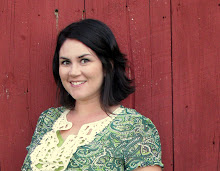The auditorium is abuzz with the bubbling excitement of a beehive. The lights dim ever so slightly and the buzz slowly turns into a low hum. I scan the audience and see that the number of college students, worn farmers, and families are roughly in proportion. It impresses me that so many different groups have come together to learn about the same thing. Joel Salatin is here, and we are hungry for his point of view.
 POLYFACE FARMS
POLYFACE FARMS
Salatin is the farmer of Polyface Farms, featured and made notorious by Michael Pollan's book, The Omnivore's Dilemma. Self-described as a "Christian Libertarian Environmentalist Lunatic", he's here tonight, at Appalachian State University, to present his lecture "Ballet of the Pasture". With a witty delivery, and first class pictures, we take a virtual tour of Polyface Farms, where "plant-animal symbiosis heals the landscape, the community, and the eater." Truly this common sense approach to farming and animal husbandry shouldn't be so revolutionary....but sadly it is! Huge, corporate agro-business has taken over the global market, and we've been suckered into thinking bigger is better and more efficient. But it has instead given us sub-par food, a disconnect from our own communities, and rampant disease. However, "it's not enought to say NO to what we don't like-we must say YES to the good, " according to Salatin.

POLYFACE FARMS
What is our food culture as a whole in this country? There are stories of corporate greed, polluted environments,
mad cow disease,
salmonella outbreaks,
genetically modified organisms, and bankrupt farmers by the hour. Can this be normal? Can it be normal for the average community to import 95% of its food? Can it be normal that the average hamburger has meat from
400 cows in it?! Joel put it poetically when he said, "If we think in our cleverness we can outbid nature-nature bats last." We don't have a relationship with our food, instead Salatin describes it as a "one-night stand of prostitution."

POLYFACE FARMS
There is another model. A local, sustainable and noble model. It is a model relationally oriented and ecologically healing. The land, and animals are not creatures that are just to be manipulated however we please. Instead, Salatin offers a different point of view, celebrating "the pigness of the pig." When we let the animals do work they enjoy, we fully honor and respect them. As Micheal Pollan puts it: "The pigs on Polyface Farm have a happy life, and one bad day." The cows rotate grazing fields, the chickens follow behind them picking out bugs and parasites, whilst leaving ecologically sound fertilizer, and the Ballet of the Pasture is played out. Instead of exploiting our resources, we instead steward them, and preserve them for future generations. Ecology and Economy are not at odds-we can have both. Polyface Farms provides food for 1,500 families, 10 retail outlets, and 30 restaurants through on-farm sales and metropolitan buying clubs. The yields per acre are up to 4 times that of current farming practices. You tell me what makes more sense.
There will be more and more farmers willing to change their models, and even new entreprenuers entering the scene, if we support our local food structure. The corporate power influences the top....and is only concerned about keeping the status quo. Salatin warns that as this movement gains ground, there is an equal push back from the opposite side of the fence. He encourages us who care about our food, our health and our land, to be vigilant and build our local food system faster. Local, grassroots efforts will create successful innovation. Let's do what's right...build relationships with your food and in turn with your community.
 POLYFACE FARMS
POLYFACE FARMS

 POLYFACE FARMS
POLYFACE FARMS






